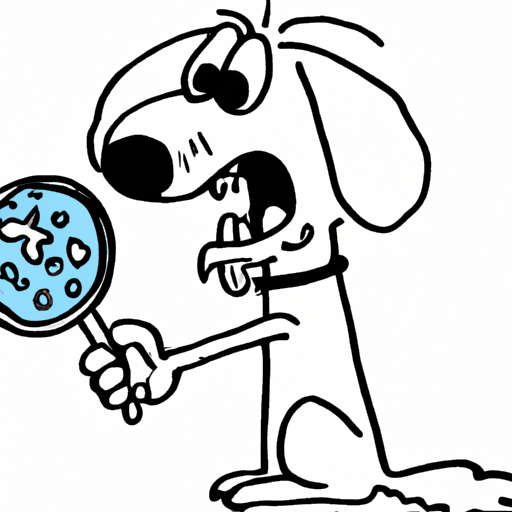As a dog lover, have you ever wondered how dirty are dogs’ mouths? It’s a common question that comes up in conversations among pet owners, often leading to an age-old myth that a dog’s mouth is cleaner than a human’s. This article aims to shed light on this topic, exploring the cleanliness of a dog’s mouth from a scientific perspective.
Table of Contents
- Debunking the Myth: Are Dog’s Mouths Cleaner Than Humans?
- Understanding the Bacteria in Dogs’ Mouths
- Dogs’ Oral Hygiene: How to Maintain
- Frequently Asked Questions
Key Takeaways
- Dog’s mouths are not cleaner than humans’.
- The types of bacteria in a dog’s mouth are different from those in a human’s mouth.
- Proper oral hygiene is crucial for dogs to prevent diseases.
- Regular vet check-ups are essential to maintain your dog’s oral health.
Debunking the Myth: Are Dog’s Mouths Cleaner Than Humans?
Let’s start by debunking a common myth: A dog’s mouth is cleaner than a human’s. Contrary to popular belief, this statement is not true. According to a study published on the National Library of Medicine, the types and amounts of bacteria present in a dog’s mouth are quite different from those in a human’s mouth.
When it comes to bacteria, it’s not about who has more or less – it’s about the types of bacteria present. Dogs and humans have different types of bacteria in their mouths, and some of these bacteria can be harmful if transferred between species. For instance, Capnocytophaga Canimorsus, a bacterium commonly found in dogs and cats’ mouths, can cause severe infection in humans if transferred through a bite or lick on an open wound.
Understanding the Bacteria in Dogs’ Mouths
So, how dirty are dogs’ mouths? It’s important to understand that the word “dirty” can be misleading. Just because a dog’s mouth is filled with bacteria doesn’t mean it’s dirty in the same way a dirty dish or a dirty pair of socks is dirty. The bacteria in a dog’s mouth, like in a human’s mouth, are part of a normal, healthy microbiome.
Dogs use their mouths for more than just eating and drinking. They use them to explore their environment, to play, and even to clean themselves. This means they are exposed to a wide variety of bacteria daily.
While some bacteria can cause diseases, many are harmless or even beneficial. A healthy dog’s immune system can usually keep the potentially harmful bacteria in check. However, problems can arise when a dog’s oral hygiene is not maintained, leading to a buildup of harmful bacteria, which can result in oral diseases like periodontitis. For more information on how to prevent these diseases, check out this article on OneTopDog.
Dogs’ Oral Hygiene: How to Maintain
Just like humans, dogs need regular oral hygiene to maintain a healthy mouth. Here are some steps you can take:
-
Brush your dog’s teeth regularly: Use a dog-safe toothpaste and a soft-bristled toothbrush. Make sure to brush all the teeth, not just the ones in the front.
-
Provide dental chews and toys: These can help reduce plaque and tartar buildup. However, they should not replace regular brushing.
-
Regular vet check-ups: Your vet can perform a thorough oral examination and professional cleaning if necessary. They can also advise you on the best oral hygiene practices for your specific dog breed.
For a more detailed guide on maintaining your dog’s oral hygiene, visit OneTopDog.
Frequently Asked Questions
1. Can I get sick from my dog’s mouth?
While it’s rare, there is a risk of getting an infection from your dog’s mouth, especially if your immune system is compromised. If your dog licks an open wound or if you have a weak immune system, it’s best to consult with a doctor.
2. Can dogs get cavities?
Yes, dogs can get cavities, although they are less common than in humans. Regular brushing and professional cleanings can help prevent them.
3. How often should I clean my dog’s teeth?
It’s recommended to brush your dog’s teeth daily, but if that’s not possible, aim for at least three times a week. Regular professional cleanings by a vet are also recommended.
In conclusion, while dogs’ mouths are full of bacteria, they aren’t necessarily “dirty.” As long as proper oral hygiene is maintained and regular vet check-ups are conducted, your dog should have a healthy and clean mouth. For more information on dogs’ health and wellness, check out OneTopDog.



